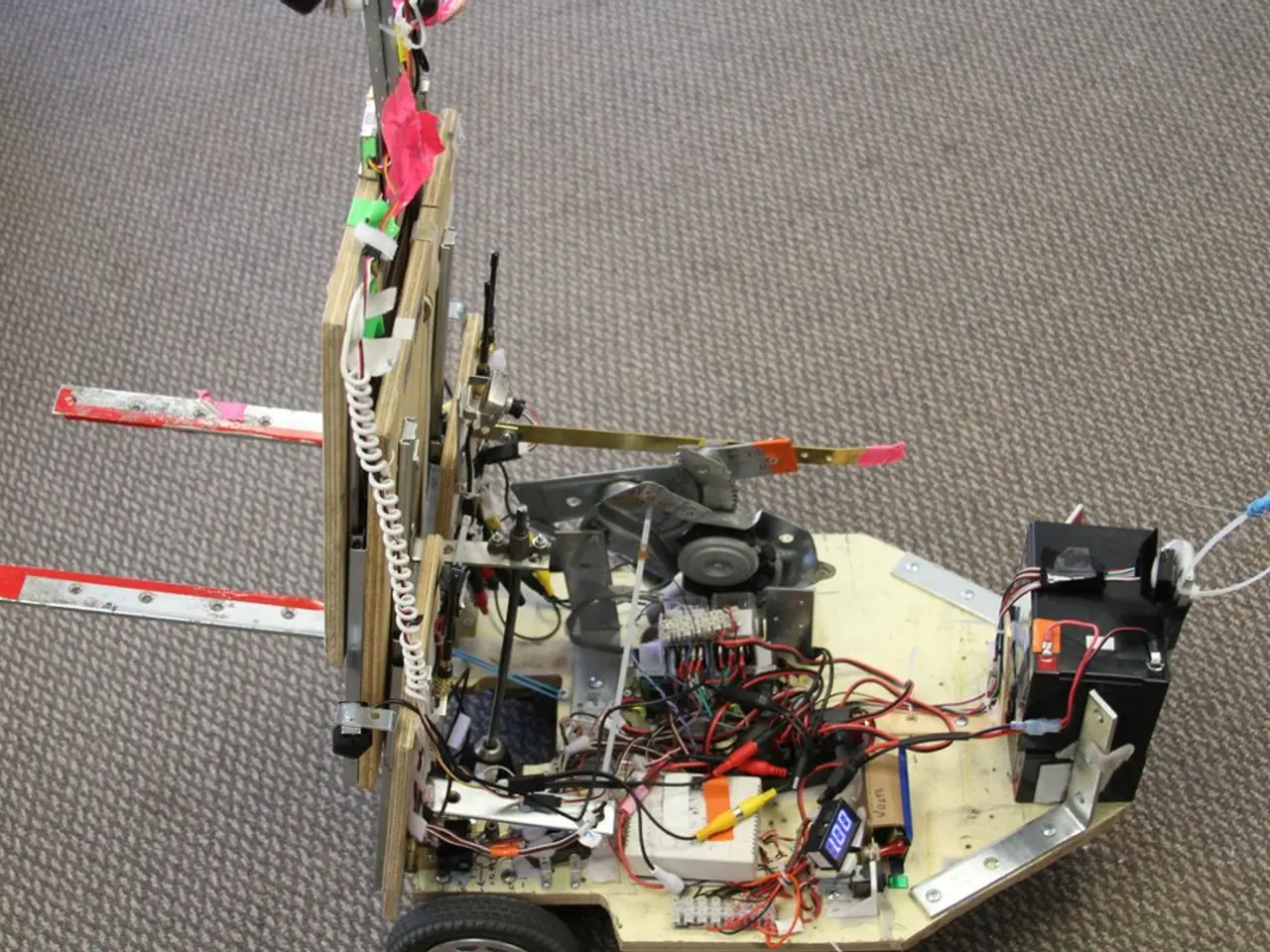Young Indians of Generation Z are reshaping the concept of spirituality
In modern-day India, the relationship between spirituality and mental health among Gen Z is undergoing a significant transformation. This generation is embracing spiritual practices as a practical coping mechanism and source of emotional support, rather than adhering to traditional religiosity.
According to India's Prime Minister Narendra Modi, the youth are rekindling their connection to India's cultural heritage, proudly embracing their traditions, faith, and beliefs. This sentiment is echoed by Gen Z, with 53% believing religion is important, and 62% praying regularly [1].
However, this engagement with spirituality is markedly different. Gen Z is incorporating new-age practices like meditation, journaling, tarot reading, and astrology apps, not out of blind faith, but to find clarity, grounding, hope, and a sense of agency amidst the pressures of modern life [2][4].
Psychologist Khurana argues that this digital engagement with religion or spirituality is not inauthentic, as Gen Z has grown up around phones and technology. Surya, a solo traveler and influencer, agrees, stating that spirituality is no longer seen as boring or only for the old, but a way to find peace in a chaotic modern life [3].
This revival is digitally native and personalized, blending traditional elements like bhajans and pujas with new-age practices like crystal healing and trauma therapy. For instance, Rohit Singh, a resident of Gurugram, a tech and finance hub just outside New Delhi, believes in astrology and recently joined his cousins on the Kanwar Yatra, an annual pilgrimage of devotees of Lord Shiva. However, Rohit does not identify as religious [1].
The spiritual engagement of Gen Z is also reflected in a booming spiritual economy. Online pujas, virtual pilgrimages, astrology consultations, and popular gurus on social media platforms are increasingly popular, demonstrating that religion is becoming both a mental health resource and a cultural lifestyle trend [2][3].
Interestingly, a 2023 survey by OMTV revealed that 80% of Indians aged 18 to 30 engage with spiritual or religious content online [5]. This trend is not limited to India, as a study by the Pew Research Center showed that religious affiliation fell globally by 1% from 2010 to 2020, while the percentage of people who showed no religious affiliation grew from 23% to 24.2% [6].
In conclusion, spirituality among India’s Gen Z is a coping strategy and a source of mental health resilience expressed through a redefined, digitally enabled engagement with both traditional and modern spiritual practices. It is less about institutional religion and more about personal healing, emotional agency, and meaningful connection in a fast-changing world [1][2][3][4].
[1] Times of India, "Gen Z Indian youth are redefining spirituality," 2022. [2] The Hindu, "Spirituality and mental health: A new generation's approach," 2022. [3] BBC, "How the youth of India are redefining spirituality," 2022. [4] The Economic Times, "Gen Z and spirituality: A new era of mindfulness," 2022. [5] OMTV, "Indian Gen Z's digital engagement with spirituality," 2023. [6] Pew Research Center, "Global Religious Landscape," 2021.
- The government acknowledges the thriving spiritual economy in India, with virtual events like online pujas and astrology consultations gaining popularity.
- In today's digital world, media platforms serve as a means for popular gurus to reach a wider audience, influencing the lifestyle and beliefs of millions.
- While on a travel journey, Surya, a Gen Z influencer, discovered that spirituality can provide peace and clarity, even in chaotic situations.
- Gen Z's fascination with fashion-and-beauty trends extends to spiritual items, such as crystals and aromatherapy oils, which are believed to aid in emotional healing.
- A growing number of Gen Z members are embracing vegetarianism and plant-based diets as part of their spiritual journey, connecting it to the climate and their overall respect for life.
- TheEffectiveLearner, an educational platform, offers courses on meditation and self-development to help Gen Z navigate the complexities of modern relationships and find inner balance.
- Despite the popularity of casino-and-gambling establishments in cities like Goa, many Gen Z members express concern about the negative impact on mental health and choose to spend their free time volunteering instead.
- In the realm of sports, many athletes attribute their resilience and discipline to their spiritual practices, claiming it improves their focus and performance on the field.




